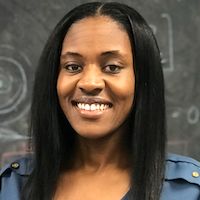
- This event has passed.
Renee Brady-Nicholls (Moffitt Cancer Center, Integrated Mathematical Oncology)
December 3, 2020 @ 10:40 am - 11:30 am

Predicting Individual Responses to Hormone Therapy in a Leave-One-Out Study Using Prostate-Specific Antigen Dynamics
Prostate cancer (PCa) is the second leading cause of cancer death in American men, second only to lung cancer. It is typically treated with androgen deprivation therapy, which depletes the androgen that prostate cancer cells depend on for survival. Intermittent androgen deprivation therapy (IADT), whereby treatment is cycled on and off, can significantly reduce cumulative dose and limit toxicities. It may also delay the progression to hormone refractory disease. Predicting the precise time when resistance will develop allows for appropriate modulation of treatment that can potentially maximize time to progression and improve PCa outcomes. We have previously developed a quantitative framework to simulate prostate specific antigen (PSA) dynamics, with enrichment of prostate cancer stem-like cell (PCaSC) during treatment as a plausible mechanism of resistance evolution. Simulated PCa and PSA dynamics demonstrate that PCaSC proliferation patterns correlate with longitudinal serum PSA measurements in 70 PCa patients undergoing IADT. By learning dynamics from each treatment cycle in a leave-one-out study, we were able to obtain training-set specific PSA production and decay rates, and patient-specific PCaSC proliferation and ADT cytotoxicity rates. Using this and individual cycles of treatment, we were able to accurately predict individual evolution of resistance with an overall accuracy of 89% (sensitivity=73%, specificity=91%). Using the same methods, we evaluated the predictive power of the model in metastatic castration resistant PCa using longitudinal data from 16 patients receiving second-line hormone therapy. In this setting, we were able to predict response with 81% accuracy. Our results demonstrate the feasibility and potential value of adaptive clinical trials guided by patient-specific mathematical models of intratumoral evolutionary dynamics.